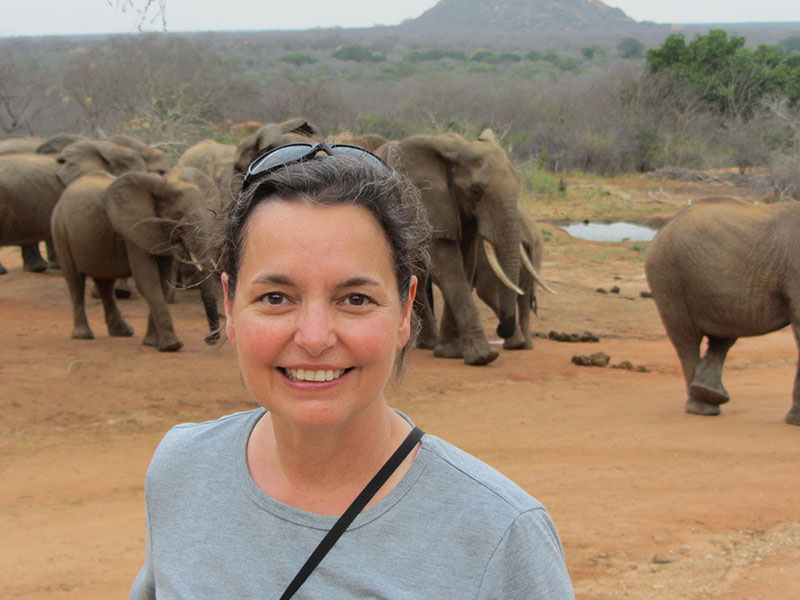A future Africa with no elephants: that was the image that kept Sheryl Mays walking—through heat and blisters—along paths cleared by wild animals in northern Kenya, until she’d covered 100 miles.
For a week in early February, Mays and her partner, Peter Ordonez, walked between 10 and 15 miles a day to raise $5,400 to pay for anti-poaching scouts in the region. As part of an international team of 10 trekkers supported by local guides and 22 camels, Mays returned to Williamsburg, Virginia, temporarily exhausted but physically and mentally stronger—and determined to continue her efforts.
“The last day, we got to meet some community scouts who told us, ‘We don’t want to have to tell our grandchildren about these amazing creatures called elephants that are no longer here,’” Mays says. “It moved everyone to tears. I would do it all again.”
Mays, director of operations and public programs for Historic Jamestowne, has long donated money to wild animal causes. She has a special affection for elephants—intelligent and family-oriented creatures hunted for their ivory tusks. She took action when she read a Facebook post about the “100 Miles for Elephants” trek organized by two groups — Space for Giants and the Earth Elephant Initiative in partnership with African community leaders and a walking safari company.
Mays, 51, also realized she’d fallen into a physical rut following several injuries, including surgery for a ruptured Achilles tendon and bursitis in one heel. “I didn’t exercise a lot, so I wanted a challenge to motivate me,” she says. She began working with a personal trainer and taking five- to seven-mile walks.
In Africa, her group slept in tents and hiked from 6 a.m. to 12 p.m. along dusty trails, took a break from the sun and 90-degree temperatures for a meal prepared by guides—food included fresh fruits and vegetables, oatmeal, eggs and homemade rolls—and got moving again after 4 p.m. tea.
The trekkers passed footprints of large animals, including lions, elephants and notoriously aggressive cape buffalo, but thankfully never had any close encounters (just one guide carried a gun; the rest had spears, machetes and clubs). Mays later visited a rehabilitation program for orphaned baby elephants, but the highlight was talking to people passionate about reporting poachers to wildlife officials.
Mays now hopes to raise more awareness through school presentations and is contemplating two new adventures: a trek in Rwanda to help protect mountain gorillas or an excursion to Borneo Rainforest to see the orangutans in their habitat and learn about what’s being done to save these species.
“I came home in a better place,” she says. “I don’t want to stop here.”

